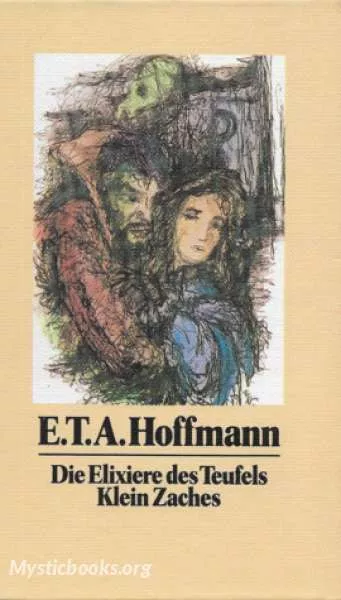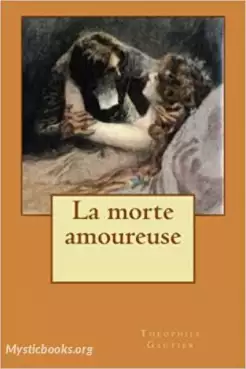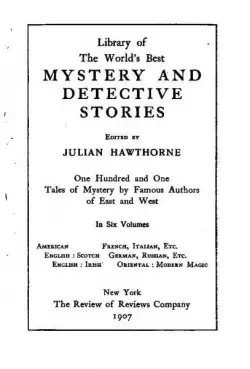
Die Elixiere des Teufels
'Die Elixiere des Teufels' Summary
The Devil's Elixirs is predominantly a first-person narrative related by the Capuchin monk Medardus. He is ignorant of his family history and what he knows about his childhood is based upon fragments of memory and a few events his mother has explained to him.
Medardus cannot resist the devil's elixir, which has been entrusted to him and which awakens in him sensual desires. After being sent from his cloister to Rome, he finds a Count, disguised as a monk as a means of seeing his lover, and pushes him (whether intentionally or not is ambiguous) from a "Teufelssitz" ("devil's perch"). Unbeknownst to all involved, the Count is Medardus's half-brother and the Count's lover is his half-sister. The Count becomes his lunatic doppelgänger and crosses his path multiple times after Medardus abandons his ecclesiastical position, drifting throughout the world.
The story centers on his love for a young princess, Aurelie. After murdering her stepmother (the above-mentioned half-sister) and brother, Medardus flees to a city. After his devilish connection is found out by an old painter, Medardus flees the city with the help of a "foolish" hair dresser with two personalities, who serves as a foil to the destructive dual identity of Medardus, gaily living as both Peter Schoenfeld and Pietro Belcampo. He arrives at a prince's court, soon followed by Aurelie. She recognizes the monk as her brother's murderer and Medardus is thrown in jail. He is released only after the doppelgänger appears and is taken as the murderer.
Having passed himself off for a Polish noble while in prison he is engaged to Aurelie. On their wedding day however, he is overcome by a fit of madness, hearing the voice of the doppelgänger, which has been occurring ever more frequently to this point; he stabs Aurelie, frees the doppelgänger as he was being taken to his execution, and runs about the wilderness fighting the doppelgänger for months until he awakens in an Italian cloister, once more saved by Pietro/Peter. He is once more wearing his frock with the name Medardus stitched on it.
Returned to his original identity Medardus undergoes an intense process of repentance and discovers his family history by reading the diary of a painter. After meeting with the Pope and becoming involved in potentially fatal Vatican political intrigue (which suggest he may still have devilish ambitions to power) Medardus returns to the German cloister. A great fest is being held – Aurelie is soon to take her final vows to become a nun. Once again he must struggle with his lust. Just as he seems to have mastered it the doppelgänger rushes in and stabs Aurelie, fatally this time, and once more escapes. At the end, he writes this manuscript as an act of penance. A final note from the librarian of the cloister reveals circumstances of his death – namely a hysterical laughing which casts doubt on his implied redemption from satanic possession. (or - since he dies in a calm sleep precisely a year after Aurelie, he did repent; and the laughter was given out by his half-brother, still lurking in the cloister's hidden chambers, still embodying the evil part of the protagonist's personality, and still needing time to repent, which he could do after joining the cloister as a monk with Leonardus' help)
Book Details
Language
GermanOriginal Language
GermanPublished In
1815Authors

E. T. A. Hoffmann
Prussia
Ernst Theodor Amadeus Hoffmann was a German Romantic author of fantasy and Gothic horror, a jurist, composer, music critic and artist. His stories form the basis of Jacques Offenbach's opera The Tales...
Books by E. T. A. HoffmannDownload eBooks
Listen/Download Audiobook
- Select Speed
Related books

Clarimonde, La Morte Amoreuse by Theophile Gautier
"La Morte amoureuse" is a short story written by Théophile Gautier and published in La Chronique de Paris in 1836. It tells the story of a priest name...

Walpurgisnacht by Gustav Meyrink
In "Walpurgisnacht," Gustav Meyrink weaves a tale of mystery and the supernatural set in Prague. A sleepwalking actor disrupts a gathering in the hom...

Muerta Enamorada by Theophile Gautier
La Muerta Enamorada es un cuento romántico que explora la delgada línea que separa la vida y la muerte, el sueño y la realidad. La obra de Gautier es...

Phantom Death and Other Stories by William Clark Russell
A haunting collection of nautical ghost stories set on the high seas, evoking the eerie atmosphere and strange occurrences that can befall those who t...

Isle of the Undead by Lloyd Eshbach
In Lloyd Eshbach's chilling tale, "Isle of the Undead," a group of unsuspecting yachters find themselves shipwrecked on a remote and desolate island....

Herrn Arnes Schatz by Selma Lagerlof
Herrn Arnes Schatz erzählt die Geschichte eines Mordes, der eine kleine schwedische Gemeinde erschüttert. Der reiche Pfarrer von Solberga und seine Fa...

Library of the World's Best Mystery and Detective Stories, Volume 5 by Anonymous
In the six volumes of the Library of the World's Best Mystery and Detective Stories, Julian Hawthorne presents us thrilling and mysterious short stori...

storie del castello di Trezza by Giovanni Verga
Set in the crumbling Trezza Castle, this book tells the intertwining stories of Matilde, her husband Giordano, Luciano, and the mysterious Olani. Amid...

Tales of Men and Ghosts by Edith Wharton
This collection of short stories explores the moral dilemmas and psychological struggles of upper-class American society in the early 20th century. Wh...

Incredulity of Father Brown by Gilbert K. Chesterton
This book contains a collection of detective stories featuring Father Brown, a priest who uses his keen intellect and common sense to solve mysteries....
Reviews for Die Elixiere des Teufels
No reviews posted or approved, yet...